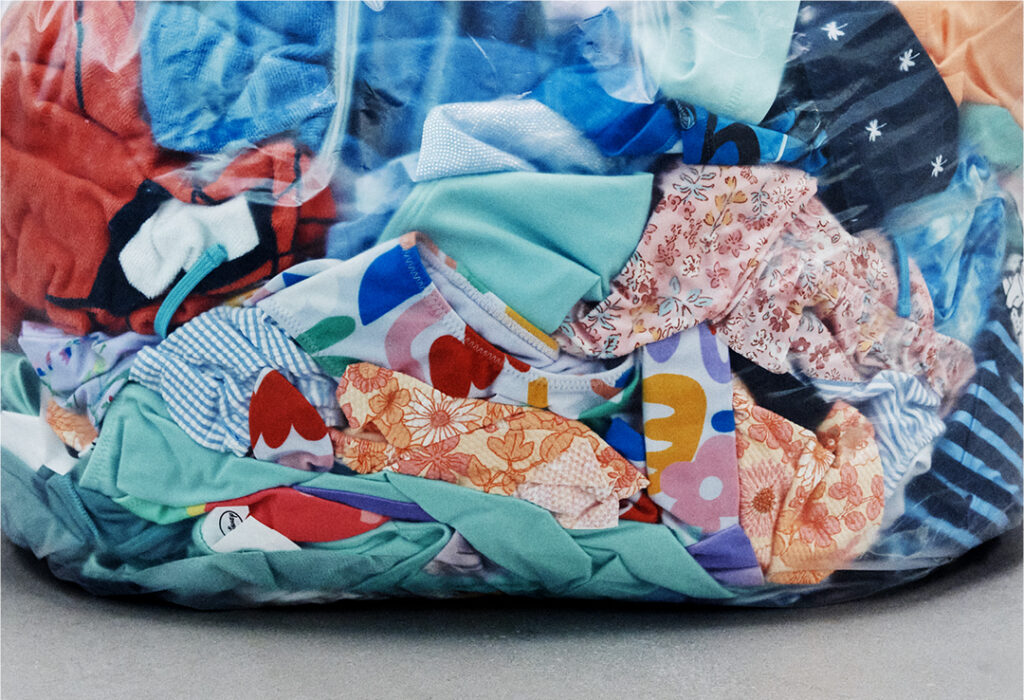GFA and H&M Foundation Forge Partnership to Accelerate Circularity


Today on Global Recycling Day, Global Fashion Agenda (GFA) and H&M Foundation are thrilled to announce a new collaboration to bolster the efforts of the Global Circular Fashion Forum (GCFF). This three-year partnership will not only infuse substantial funding into GFA’s circularity impact initiatives but will also serve as a catalyst for the expansion of the National Circular Fashion Partnership programmes, currently active in Bangladesh, in development in Cambodia and Vietnam, and set to include Türkiye and Indonesia.
Circular systems present an opportunity to decouple economic development from the consumption of finite resources, reduce GHG emissions, and offer dignified, inclusive employment opportunities for workers throughout the fashion value chain. Nevertheless, the circularity gap is widening. In 2023, global circularity stood at 7.2%, down from 9.1% in 2018, revealing that 90% of materials are either wasted, lost, or remain untapped for reuse.[1] Proceeding on the fashion industry’s current linear path, resource flows will become less dependable, and more value will be destroyed.
Scaling existing textile-to-textile recycling technologies could realise approximately 75% of products from recycled materials, resulting in better margins and significant job creation.[2] Yet today, less than 1% of textile waste is recycled into new textiles, representing an annual loss of over USD 100 billion worth of materials.[3]
Launched in 2022, GCFF is a global initiative, established by GFA and supported by Deutsche Gesellschaft für Internationale Zusammenarbeit GmbH (GIZ), which spurs global and local action in textile manufacturing countries to accelerate and scale recycling of post-industrial textile waste. As of November 2023, the GCFF and its National Circular Fashion Partnerships have recycled 10685 tonnes of textile waste (equivalent to approximately 60 million t-shirts)[4], by establishing a cooperative community of some 179 manufactures, 15 waste handlers, and 22 recyclers.
With the invaluable support of H&M Foundation, continued partnership with the Deutsche Gesellschaft für Internationale Zusammenarbeit GmbH (GIZ), and in close collaboration with its project partners Circle Economy, Closed Loop Fashion, and Reverse Resources, and local stakeholders in the targeted regions, GFA is poised to extend the reach and amplify the influence and impact of GCFF, establishing an effective ecosystem for scaling circularity within the fashion industry.
Together, these organisations will work to realise the GCFF’s overarching vision: to spearhead a long-term, scalable, and just transition towards a fully circular fashion industry. This is to be achieved through a strategic blend of knowledge exchange, multistakeholder facilitation, and mobilising industry commitment.
“This landmark partnership with H&M Foundation will enable Global Fashion Agenda to significantly expand its impact work, which is centred around our vision of a creating net positive fashion industry,” expressed Federica Marchionni, CEO, GFA. “Together we can converge, collaborate, and chart a course towards a socially just circular fashion industry that turns textile waste into value, minimises the production of virgin materials, and aligns with the 1.5-degree pathway.”
1 – Mobilising the industry to commit to producing and using recycled materials with lower carbon impact.
2 – Facilitating knowledge exchange across countries and regions, with the development of supportive publications and tools.
3 – Enabling the realisation of locally owned and led National Circular Fashion Partnerships inmanufacturing countries, fostering multistakeholder efforts to establish and scale effective national infrastructures for post-industrial textile waste recycling.
Collaboration between GFA, H&M Foundation, and project partners working in the identified countries including GIZ, Circle Economy, Closed Loop Fashion, and Reverse Resources, will continue to drive the project’s implementation in order to achieve shared impact goals.
“Working towards greater circularity and impactful change in the textile industry requires bringing together diverse stakeholders across the entire value chain. This is why we’re incredibly proud and excited to join forces with the Global Fashion Agenda. Together we’re putting the pieces in place to create a self-sufficient infrastructure that endures far beyond the scope of this partnership,” says Christiane Dolva, Strategy Lead at H&M Foundation.
Circular Systems are a critical piece of the puzzle of solutions to achieve a net positive fashion industry. In order to achieve a holistic and systemic transformation, the fashion industry must also prioritise other social and environmental factors including the establishment of respectful and secure work environments, better wage systems, resource stewardship and smart material choices. Download the GFA Monitor to learn more.
Find out more about the Global Circular Fashion Forum and follow our journey.
H&M Foundation
H&M Foundation is privately funded by the Stefan Persson family, founders and main owners of the H&M Group. The H&M Foundation uses philanthropic resources to find, fund and facilitate disruptive innovations, initiatives and research that enable a socially inclusive and planet positive textile industry. To accelerate the transformation, they take on a holistic and open approach – bringing diverse partners together to co-create, and to share learnings and solutions. The H&M Foundation can also provide emergency relief. For more information visit hmfoundation.com.
[1] Circularity Gap Reporting Initiative (2023). The Circularity Gap Report 2023
[2] Global Fashion Agenda (2021). Scaling Circularity.
[3] Ellen MacArthur Foundation (2021). Circular business models: redefining growth for a thriving fashion industry.
[4] Based on the assumption that an average weight of 180g – Ellen MacArthur Foundation (2017). A New Textiles Economy.